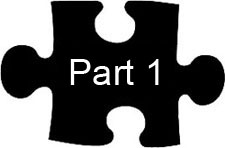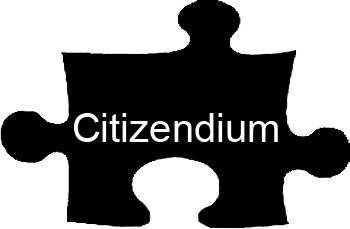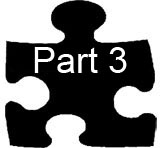


Citizendium: The Citizen's Compendium
AH: You’ve described your initial vision of Wikipedia and Nupedia as complementary parts of a symbiotic whole. Do you think of Citizendium and Wikipedia in the same way or does Citizendium subsume Wikipedia?
LS: I’d say that Citizendium contains the parts of Wikipedia within it, definitely. There’s no partnership implicit or explicit between the two.
AH: Writing about the early success of Wikipedia, you explained that it was not “just another wiki” because it had a real focus, in that it functioned as an encyclopedia. You’ve also referred to Citizendium as a “citizen’s compendium.” Do the terms “encyclopedia” and “compendium” still strike you as accurate or are these projects something else?
LS: Well, there are several different aspects to that question. One thing that I would like to say is that Wikipedia actually has hundreds of thousands of articles on topics that would not get into any general encyclopedia. Citizendium is open to most, if not all, of those same topics. The very fact that there are so many topics actually changes, I think, the nature of the reference. Traditionally an encyclopedia was supposed to be—is, I guess I should say—a summary of what is known, and the emphasis here is on summary. It isn’t intended to canvas everything that is known about everything but merely summarize it. Therefore, the job of the encyclopedist was regarded as something like the job of a librarian, who has to choose which topics or which books are most important.
I have interacted with some, shall we say, “traditional” sorts on Citizendium who maintain that we simply shouldn’t have an article about such-and-such because it’s not important enough. Of course, there are some people on Wikipedia who say the same thing. Ultimately there isn’t any reason to take that point of view in this medium. The medium allows for articles about anything. As long as there are enough people to maintain them, there’s no reason not to have them.
The second point is that Citizendium and Wikipedia are doing something other than summarizing knowledge. They are getting closer to a full canvas of knowledge. . . . I can’t think of a better word than summary or canvas here. It isn’t just summing up a field. We would like to give you every aspect of a field, if we could.
AH: There is a German publisher who is planning to publish a hard copy of the most popular entries on their Wikipedia site. They claim they will sell in hard copy an “encyclopedic yearbook” that includes key words that wouldn’t necessarily be found in a traditional encyclopedia. Do you think this exercise reverses the trend of putting things online?
LS: It’s hard for me to speculate what public taste is going to be like. I mean, if you’re just asking my personal opinion about whether that would be useful to me, the answer is obviously, “No.” All of the content is available and in its most recent form, which is always more interesting (on Wikipedia anyway).
AH: So you aren’t one of those people who say, “We’ll never get rid of books because you can’t take your computer into the bathtub with you”?
LS: Well, that’s another issue entirely. I doubt that we will get rid of books unless the medium of electronic, digital book readers improves. What I was commenting on actually is the idea of cherry-picking a few articles from Wikipedia in order to represent the “zeitgeist.” I mean, if that’s the purpose, that purpose can be achieved much more easily and cheaply simply by making a blog post: “These are the most popular topics this year. If you want to read more, then link to the articles.” (Laughs)
I’m all in favor of books. I’m all in favor of extended expositions of subjects by individuals and, I suppose, also by groups to a certain extent. In so far as a piece of writing is written as part of a free group project, then probably there isn’t a whole lot of room for book versions of that, except if they are actually written as books.
AH: Atlanticpublished an article entitled “Is Google Making Us Stupid?” What is your take on whether we’re losing the capacity for deep reading and for interpreting texts and making mental connections? Do you worry that the accessibility of short bits of information is, in the author’s words, “making us stupid”?
LS: I’ve not only read it, I’ve commented in the Britannica blog and also on edge.org. My answer to Nick Carr is, “Speak for yourself.” (Laughs) I mean, I’m working on Jane Austen actually. Lately, I’ve been rereading Pride and Prejudice just because I like it. At least the simplest explanation why we might be reading fewer books (if, in fact, we are), is that there’s just so much interesting stuff that’s going on online, and it’s competing for our time. That’s all. I don’t think that it’s necessarily making us less capable of reading extended pieces of writing. I think that’s kind of alarmist, actually. It’s an empirical question. I think it would be interesting to see some real scientific studies as opposed to an article in Atlantic about that.
AH: So you’re not convinced that somehow our brains are being rewired by the different kinds of reading that we’re doing online?
LS: I think that insofar as our ability to read extended pieces of writing reflects our ability to follow a long argument or narrative, and insofar as those things are direct reflections of our freedom of will, I think that to say that we can’t read a book anymore all the way through is to basically say that we lack free will. I mean, it’s silly. I think that if you want to, you can read a book. (Laughs) Yep, you can still read books.
I do want to concede that Carr makes a perfectly legitimate point in that you do have to have practice in reading and concentrating if you want them to remain easy. You might have a family member who decided to stop reading books after getting out of school and then decided, “Oh, I’ve heard everyone talk about this book. I think I’ll take it up.” It’s the first book that she has read in 10 years or something like that. She finds the process difficult, but it doesn’t mean that it’s impossible. Again, it’s an empirical question and as with all empirical questions, the radical claims require unusual amounts of proof. The claim that we are going to lose the ability to read an entire book is a radical claim, and it requires radical proof.
A far more plausible claim, and really the one that makes Carr’s essay interesting to people, is simply that we don’t seem to have much time to do a lot of in-depth reading any more. Perhaps, to some extent anyway, some of us don’t seem to value it as much. If you read the reply made by Clay Shirky in the Britannica blog, you’ll see that he contends it’s a good thing people are getting past this old, out-moded worship of dead white men like Plato, or Tolstoy actually. He goes on about Tolstoy, “Tolstoy is too long and not too interesting,” I think is what he says, which I totally disagree with, by the way. But that’s my taste.
AH: You’ve mentioned that one of the things that drove away some of the highly qualified people who initially were contributing to Nupedia and Wikipedia was that those people were “slowly worn down and driven away by having to deal with difficult people” (“The Early History”). In addition, academics and others stopped working on the Wikipedia project because it could “do nothing to contribute to their academic careers” (“The Early History”). By contrast, do you think academics regard contributing to Citizendium as serving this role?
LS: I get the impression that most of the people who are involved who are academics—and I would say that depending on how you define “academics” that would be about half or even a little more than half of the people who are involved—aren’t doing it for their academic careers, and we are having the same problem, quite frankly, that Wikipedia did.
There’re a couple of different reasons for that. One is that encyclopedia articles by their very nature, unless they are part of a specialist encyclopedia and therefore edited by specialists, are not really regarded as anything like an important piece of work. For purposes of tenure and advancement, you need to publish original research. On the other hand, Encyclopedia Britannica is able to get experts to write for them because they pay them. We are an entirely non-profit project and do not make very much money from our donations. We don’t have any money to pay people.
AH: How are you trying to draw people to contribute to the project?
LS: In a number of different ways. First of all, we’re trying to engineer the pages. Essentially, we argue for public service so that [the pages] are as persuasive and attractive as possible. We hope people will realize the opportunity that Citizendium represents and see that by coming together and joining the Citizendium fold, we have the chance to give the world something more credible and more valuable in the end than Wikipedia. I think scientists and professionals and academics really care about how information in their field is represented online. It bothers them when someone says something that they know to be false, so there is a natural motivation for people who care about public information in their fields to get involved with Citizendium.
AH: On a related note, Monica Hesse wrote a Washington Post article called “Truth: Can You Handle It?” in which she mentions the concern that without peer review, it’s easy for the wrong information to become the top Google hit and for the wrong information to be repeated. In fact, she points to the addition of the phrase “collateral misinformation” to The Urban Dictionary. That is, anyone who reads the false article before it gets corrected suffers from “collateral misinformation.” Is Citizendium trying to address this problem?
LS: That’s a reasonable inference. I would also say, however, we are not merely reactive to Wikipedia. I got this [Citizendium] started simply because I see a potential—the same potential that Wikipedia and Nupedia together represented—to make the most reliable information that a group of volunteers can create together, free. I think that’s extremely valuable and can be even more valuable.
AH: Perhaps we can segue from the idea of peer review to control to Citizendium. In Citizendium there’s a community charter and there’s some constables, and this is certainly a shift from Wikipedia, which does have a code of civility, but Citizendium has what are described as a “group of mature, generally good-natured ‘constables’ who rein in bad behavior.” Why is it that you decided in Citizendium that this basic civility had to be backed up by what’s referred to as “the rule of law”?
LS: The reason that wikis work generally—and this applies just as well to Citizendium as to Wikipedia—is that basically there are more people that are willing to do good work and to protect the integrity of the wiki than there are people who want to destroy it. It’s simply a numbers game, really. Your next question is going to be, “Well then, why is a need for anything like a rule of law if the problem is entirely self-correcting?” Well, that’s just an overt simplification, of course. It’s a wild oversimplification.
AH: What’s your sense of how Citizendium is doing? Is it growing to your satisfaction? How are you getting the word out?
LS: Well, I think Citizendium is doing pretty well. I think we could be doing better. We have right now 7600 articles, and this summer production is relatively slow, but it always is during the summer. People are out doing other things. Ultimately, it’s a matter of getting the word out about the fact that the model works. Many do not understand how it works and why it could work.
People know about Citizendium. They have some rough idea of what we stand for, but there’s a lot of misinformation about what we are and what we do as well. That’s disappointing to me. I have been wracking my brains trying to think of ways to get people to understand that we are not an experts-only project, for example, which is how we have been portrayed. Our main virtue is that we are more responsible. It includes making room for experts, but that’s not the only thing. Not even close.
AH: Is requiring everyone to use his or her own name rather than anonymously editing a text a move toward accountability?
LS: It does make people more responsible. There’s no question. If you ask any active “citizen”—a participant in Citizendium—you’re bound to hear that. It’s actually quite a breath of fresh air compared to Wikipedia. If you’ve spent very much time on Wikipedia, and then go to Citizendium, you find it remarkable just how civil everyone is, basically.